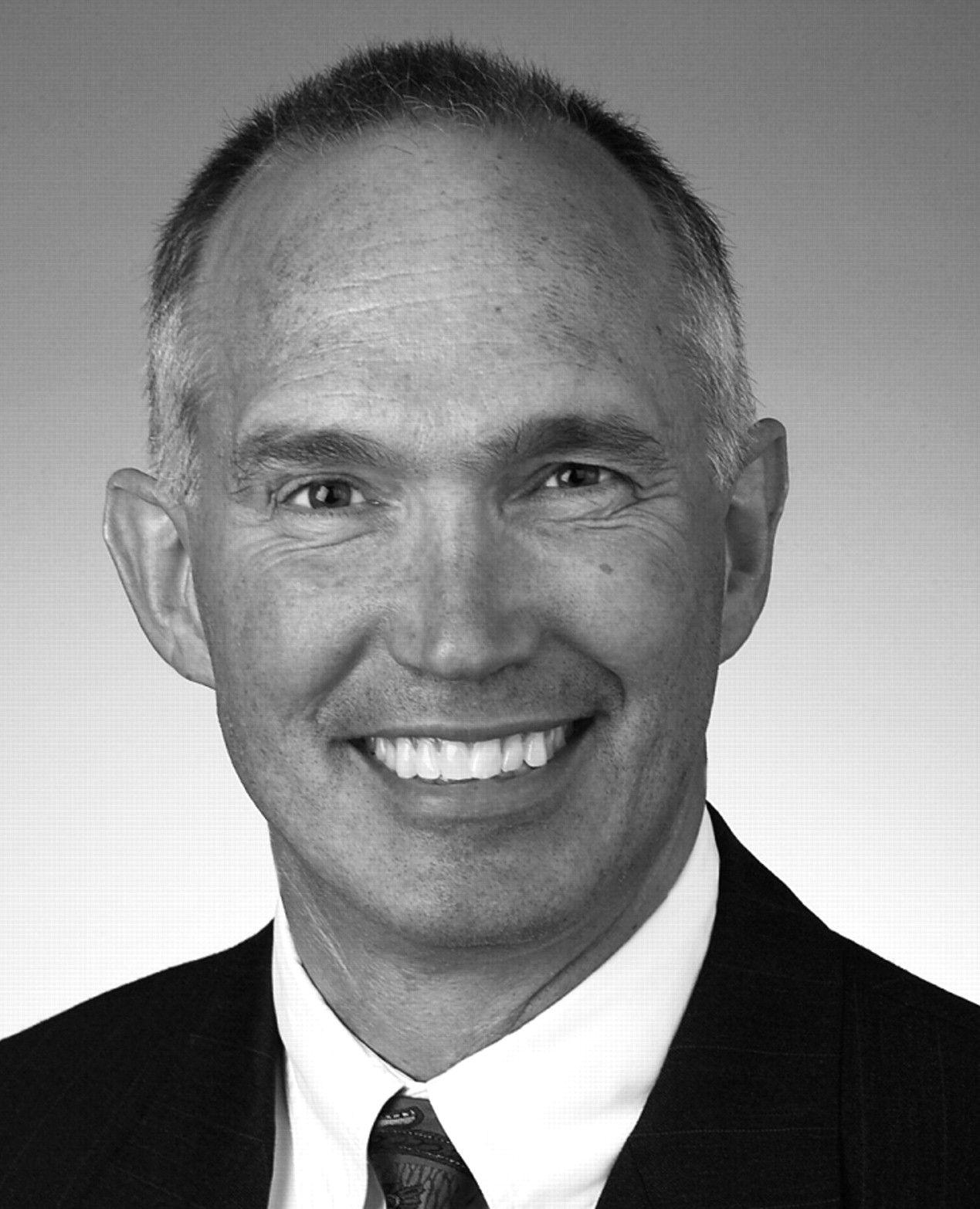CANDIDATE FOR SPEAKER-ELECT
Biographical Statement

I was raised on a farm in Montana. My mother was a teacher, my father a farmer. It was truly a family farm—my two younger sisters and I worked alongside our parents to make it successful.
From this, I learned values—discipline, problem solving, perseverence, and hard work. This developed my practical approach to being and doing. I learned to trust results, not rhetoric, and to do what needs to be done.
Kim and I married during medical school and after graduation moved to Rochester, Minn., where I did my psychiatry residency at the Mayo Clinic.
On completion, I joined a large multispecialty group in Fargo, N.D., where I still work and live. My practice is broad ranging and general. I have developed special interests in chemical dependency, mood disorders, and personality disorders. Administratively I have worked in quality improvement and as department chair. Currently I also work on contract with a local college, BCBSND, a chemical dependency provider, and as clinical faculty with UNDSOM, teaching medical students and residents.
Kim and I have raised two daughters. They are both off in college, working hard and making us proud.
Community is important to me, both as support and opportunity to give back. This is reflected in my activity over the years with my partners, church, schools, charitable activities, and professional organizations. I have been particularly blessed within the APA community through my Assembly acquaintances and the mentors I have acquired over the years.
I have clear values and a vision for the common good. I will continue to work hard, think, support our profession, and search for innovative solutions to the challenges facing psychiatrists. I will strive to keep APA a home for psychiatrists and will work for access, nondiscriminatory coverage, reimbursement, and quality care.
Candidacy Statement
The identity of APA is to be a home for psychiatrists. Our purpose is patient care. We face many challenges including declining reimbursement, access problems, scope-of-practice threats, declining support from the house of medicine, and ongoing public-identity problems and stigma.
District branches and the Board are linked by the Assembly. Through the Assembly structure each district branch has input into establishing APA priorities and goals and advising the Board in pursuit of those goals. We need this type of “bottom up” governance to involve our members and manage our current challenges.
I am running to continue in the leadership of the Assembly. My vision is to highlight the needs of our patients and to seek the appropriate allocation of resources for better access for patients, coverage parity, better reimbursement for psychiatrists, and better care through research, education, and training. I recognize this is an ambitious agenda, but see it as a continuation of the work of our current leadership.
Dreams are insufficient; we must also have a plan of action. The means to attain our goals exist only in the political arena, therefore we must continue to develop our political muscle. Each of us must develop and exercise our political leverage. This requires us to support our APA PAC, apply our expertise with media, strengthen our base with consumer organizations, and develop credibility with business, community, and political leaders.
The Assembly can have a crucial role in this. Its members can educate each of the district branches. Networks can be built around these tasks, and the knowledge gained by each district branch can be shared with others. Current Speaker-Elect Dr. Akaka is a wonderful example of this. The Assembly can model this type of involved behavior and draw the Board's attention to district branch priorities and needs.
For nine years I have been on the Assembly Executive Committee, working with other APA leaders, learning the environment, and practicing the“ art of the possible.” During my five years as Area 4 representative, I successfully increased the involvement of MITs, legislative reps, and women in the Area's DBs. Our experiments have now extended to other APA Areas. While chair of the Procedures Committee, the Procedure Code was extensively rewritten, and the committee was established as the interpreter of the Procedure Code. I chair the APA Committee on RBRVS, Codes, and Reimbursements, and our education programs are designed to see that psychiatrists can accurately code for their services. On the RUC I represent APA in developing coding recommendations to CMS. This past year as Assembly recorder, I also served on the JRC, including developing the process for review of APA position statements.
During my years of leadership in the Assembly, I have developed and shown the skills necessary to be an effective speaker. As speaker-elect I will continue to bring my vision, energy, enthusiasm, and experience to the Assembly and APA leadership.
I ask for your continued vote and trust.
Thank you.



